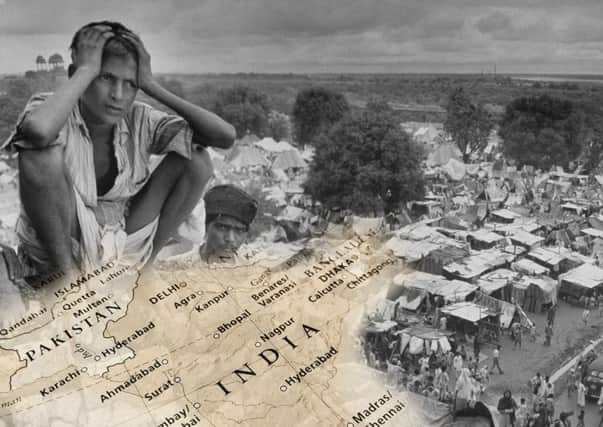Review: Partition


At midnight on August 14, 1947 British India, as it was then known, was divided along religious lines, creating the two independent states of India and Pakistan. It resulted in the displacement of around 12 million people and triggered large-scale violence – the death toll is estimated at between 1 and 2 million.
A dark, difficult – and not much discussed – period of history which tore families and communities apart, it is a huge, tragic episode, one of the major defining moments of the 20th century and its consequences are still being felt today, generations on.
Advertisement
Hide AdAdvertisement
Hide AdGiven the enormity of the subject matter, playwright Nick Ahad wisely chooses to focus on one small human story for his compelling, moving – and often very funny – exploration of the lasting legacy of those turbulent historical events. In modern-day Leeds a young Muslim woman Saima and a young Sikh man Ranjit are preparing for their wedding day which is overshadowed by their families’ fierce opposition to the marriage. It is quite possible that no-one will turn up for the ceremony at the Town Hall. It is a love story that the audience are immediately invested in – even if the obstacles in the way of a happy ending seem insurmountable.
The play, a collaboration between BBC Radio Leeds and the West Yorkshire Playhouse, was broadcast last month at midnight on the 70th anniversary of Partition. At the weekend it was performed on stage in the Playhouse’s Courtyard Theatre as a ‘live’ radio play, complete with scripts in hand and sound effects created by a stage manager. The performances from the talented cast – Balvinder Sopal, Mez Galeria, Darren Kuppan and Dominic Gately – were all excellent, with the actors effortlessly switching between several characters, voices and accents. Thoughtful and creative direction from Stefan Escreet, using lighting to great effect, ensured the transitions from scene to scene were slick and seamless.
Ahad must be congratulated on tackling the weighty issue of Partition with such a deft lightness of touch. This is no dry history lesson – it is about family, community and human connection, infused with a warmth and humour that quietly gets its message across. While acknowledging that we cannot escape the past, Ahad’s play offers hope: the brutal facts of history are unalterable but what really matters is the way in which we face them in the present and, through love and understanding, embrace a better future. All this is communicated with wit, real emotional depth and great humanity.